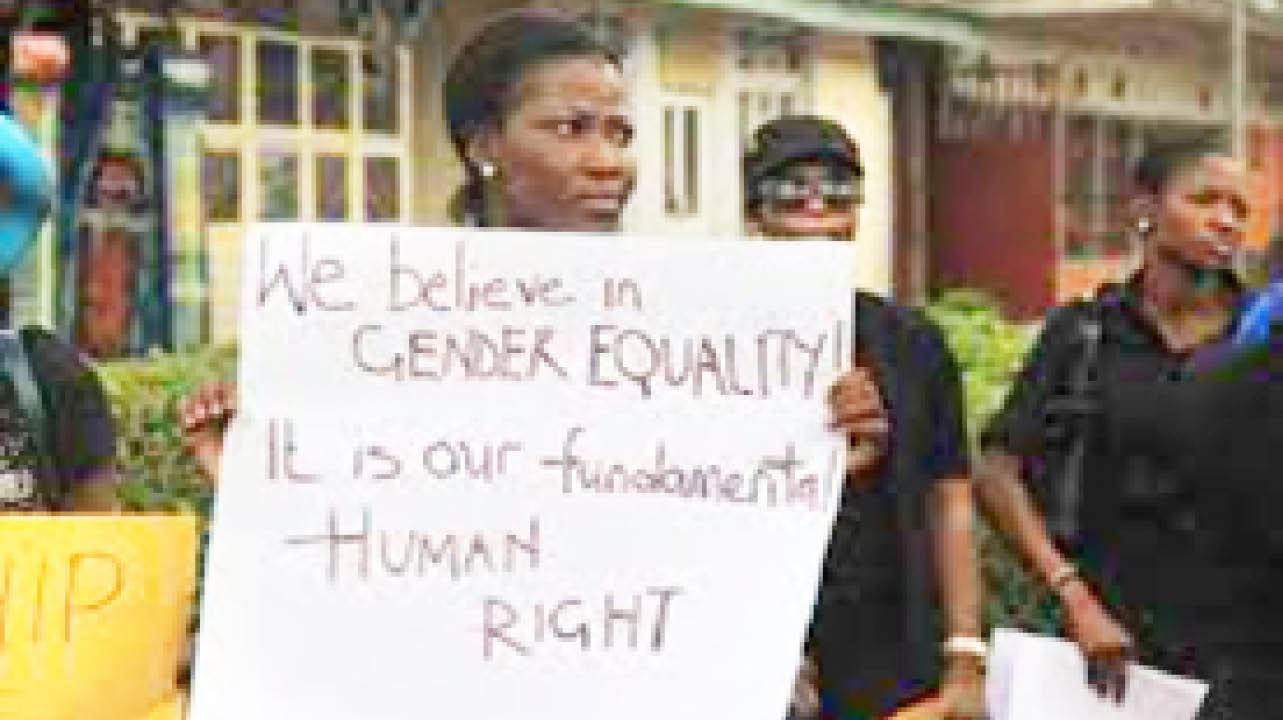Even with a growing feminist movement in Nigeria, Nigerian women are still subjected to some forms of discrimination from their male counterparts and even sometimes their fellow women. Daily Trust on Sunday highlights discriminatory experiences faced by the Nigerian woman.
Gender discrimination occurs when people are treated unevenly because of their gender, rather than on the grounds of their particular abilities or skills.
Sexual harassment and derogatory remarks are two examples of discriminatory practices you may encounter among your peers at home, at school, or at work.
Harassment and derogatory remarks on the street are two examples of how women’s freedom to move about their surroundings is constrained. The normalization of harassment, as well as bystanders’ and authorities’ inactivity, perpetuates discrimination and restricts women’s freedom.
The daily practice of gender discrimination is what strengthens the stereotypes built around men and women. Stereotypes are preconceived notions about how individuals should behave based on their gender identity.
Girls, for example, should stay at home and assist in housework and childcare, dress modestly, and refrain from going out late at night. People are frequently rated based on how closely they conform to gender stereotypes.
Being denied a job employment because of your gender and not because your qualifications do not meet up to the requirement is a form of gender discrimination. As a female student, being told to choose certain courses just because they appropriate your gender is a form of gender discrimination.
Mrs Felicia Agu who shared an experience with Daily Trust on Sunday mentioned that the girl child is nurtured to accept or manage discrimination right from a young age till she becomes an adult woman.
She explained that; “On certain occasions when I go for PTA meetings at my children’s school, I observe the powers shared between the head boy and the head girl during the meeting. The head boy was given more grounds to speak on issues that were affecting the whole school while the head girl spoke on issues as it affected women.”
“To my disappointment, the meaning I gathered from that experience was that if a woman is put in a position of authority, she isn’t seen as someone who can speak up for all the groups, she is mostly just reduced to being a representative of women in general.”
She further mentioned that if females are continued to be portrayed as submissive and followers of men, then young women and young girls will find it hard to command authority when put in powerful positions.
“I walked through the school reception and noticed that only the head boy’s photograph had been placed alongside that of the principal and vice-principal of the school. Where was the head girl, I asked myself? Isn’t she worthy of having her picture alongside important figures in the school?
“I said to one of the other parents whom I had shared my observation with that, there wasn’t a point of creating the head girl position when she wouldn’t be given the same respect and benefits as her male counterpart, rather she’d be called his assistant, only then would we understand the dynamics at play,” she added.
Mary Editan said she had earlier faced some level of discrimination while job hunting in Abuja. She said that “The way the man had sexualised me and spoken to me, I can guarantee you that if it was to be a man, the interview would have been very direct and straight forward.”
She further explained that “As he spoke to me about my qualifications, his eyes were focused on my chest. He made it so obvious that I began to feel uncomfortable. When the interview was done, he said to me that I had the nicest smile, skin colour and body and so he would try to see my application through. After that, he proceeded to hug me and asked me to call him when I’m home.”
Miss Editan mentioned that she never went back to that office after the experience. “I walked in there confidently knowing that I had all the necessary qualifications, why would I still have to be sexualised before I can be given a job?
“The man who had gone in before me didn’t spend up to 15 minutes in there. Meanwhile, my interview took 30 minutes and he used 15 minutes of it to admire my body and tell me all the heights I could attain with my kind of body.
“Situations like this is what also give men the audacity to say a hardworking woman slept her way to the top,” she added.
Another lady who spoke with Daily Trust on Sunday, Miss Yemi Adejo, also noted that within her workplace, many of the women have conditioned themselves to be submissive because the men do not admire the idea of a woman being in charge of them.
She narrated that “When the woman wants to ask the men under them to do something, they either plead with them or entice them. Their approach is always subtle and calm, whereas if a male boss wants any of the females to get some work done, he speaks with boldness and authority.
“At a round table conversation with my colleagues, one of the men complained openly that he does not feel comfortable working under a woman and had begun searching for a job elsewhere. He said if he could take orders from his boss, he therefore can take orders from his wife and that will never happen,” she added
Peace Agbai, a gender activist, mentioned that a discriminatory issue rarely ever addressed is how women are treated at highbrow restaurant and lounges within big cities in Nigeria.
“I walked into the restaurant with my partner and I found it discriminatory and embarrassing that only the man was greeted. The whole conversation from what table to seat at, what should be served and when they brought the bill, my partner was the one who was addressed.
“I find it to be very derogatory because it seemed as if I was a follower or worse invincible. It would do no harm for the waitress to greet me and also made sure my comfort was a priority. I mean what if I was the one to sort out the bill at the end of the day?”
She also narrated that many highbrow restaurants often never let women into certain spaces that are considered expensive.
“I walked into a restaurant to eat and when I requested to seat at the VIP section, I was told that I couldn’t seat there because I came alone and the prices differ from the outdoor space. Right before me, a single man passed and walked into the same room I was returned from. It was then I realised that I wasn’t in because they felt as a single woman I wouldn’t be able to afford my bills.”
According to Peace, gender discrimination still thrives because women are nurtured to be silent when facing any challenge. She stated that the culture of silence extends not only to domestic or sexual violence but also the little inconveniences and uncomfortable situations women are faced with daily.
While expressing her opinion, she said; “Patriarchy thrives not because of the men but women who still feel the need to submit and impress the male figures around them. If women in positions of authority can be bolder and commanding just like the men, the narrative and discrimination women face will be subdued easily.”

 Join Daily Trust WhatsApp Community For Quick Access To News and Happenings Around You.
Join Daily Trust WhatsApp Community For Quick Access To News and Happenings Around You.


